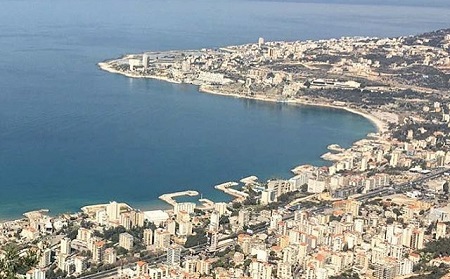Sanctuary in the City Beirut

HIC-HLRN and Amel Association from Lebanon are implementing their joint project “Sanctuary in the City: Beirut” to give voice to the experience of local governance in the refugee and displacement crisis, while promoting the principles of the “right to the city” and Human Rights Cities. The project, currently at its mid-term, is developing a professional training curriculum on the “right to the city” focusing on migration and refugee rights, with the support from Cities Alliance and UCLG, based on examples from both global and local practices. The training is materialized through four workshops with three sessions directed to local authorities and officers, civil society organizations and refugee/displaced community members.
Local authorities and civil society organizations in Beirut struggle to respond to the increased pressure on local infrastructure, basic services and social cohesion derived from the refugee crisis and displacement. These workshops focus on the rights of refugees as provided in national and international norms and policy to discuss the needs and tangible solutions for these issues. The Beirut sessions localize the materials and global discussions on the “right to the city,” human rights in the city and the practices of self-acclaimed Human Rights Cities. The exposure to global practices at local governance focuses on the main three international charters advocating the right to the city and the practices of three cities: Gwangju, South Korea, Vienna, Austria and São Paolo, Brazil. The workshop also explores the contemporary movement of “sanctuary cities.” The HIC-HLRN and Amel joint project is the first formal attempt to develop a local human rights governance culture and corresponding charter.
In order to have a full understanding of the issues of refugees and its impacts in Beirut, the training comprehensively covers the needs and gaps in refugee protection, with the support of the local authorities, civil society organizations and local refugee community in separate sessions. The final output of the project will include an assessment of refugee and governance issues in Beirut, and a draft Beirut Charter on the human rights focusing on the current crisis. Moreover, the project outcomes will contribute to the global discourse on the right to the city, in particular, through HIC-HLRN participation in the Global Platform for the Right to the City and provide open training material on the right to the city with focus on migration and refugees.
The first two workshops, organized in August and December 2016, produced a wealth of observations as a diagnosis of the situation and proposed solutions to the most-urgent livelihood and social inclusion issues in Lebanon. The sessions highlighted the importance of working toward a charter for Beirut as a tool for developing Lebanon’s capital as major human rights city out of lessons learnt from serial and protracted crises. The workshops have created an opportunity to introduce universal human rights and international law and their application in the urban and local contexts within the local legal and political framework affecting refugees and displaced persons in Greater Beirut. Finally, the participants discussed on the challenges affecting living conditions and livelihood of refugees, in particular, and on potential solutions and recommendations to improve them.
HIC-HLRN and Amel Association developed the third series of the workshops during the last week of March 2017. The third workshop, hosted both in Amel Association premises and Burj al-Barajneh Municipality, featured sessions on drafting a Beirut Charter and provided a platform to participants to discuss the document and agree on its principles, the challenges and the recommendations for cooperation among local authorities, refugee/displaced communities and civil society organizations.
Following that series of workshops, HIC-HLRN and Amel Association will compile all comments and conclusions and, in cooperation with a core group of local authorities, civil society organizations and refugee community members engaged in the process will develop the final draft of the Charter. The fourth and last workshop series in May will present the final draft and seek agreement on the final version of the Beirut Charter, which will be launched and officially presented in an event on June. The engagement and support of local entities and authorities is critical to develop a Charter and send a message to the international community on how the global responsibility of the current refugee/displacement crisis is being discharged locally.
For more information, visit HLRN’s Sanctuary in the City Beirut webpage.
|